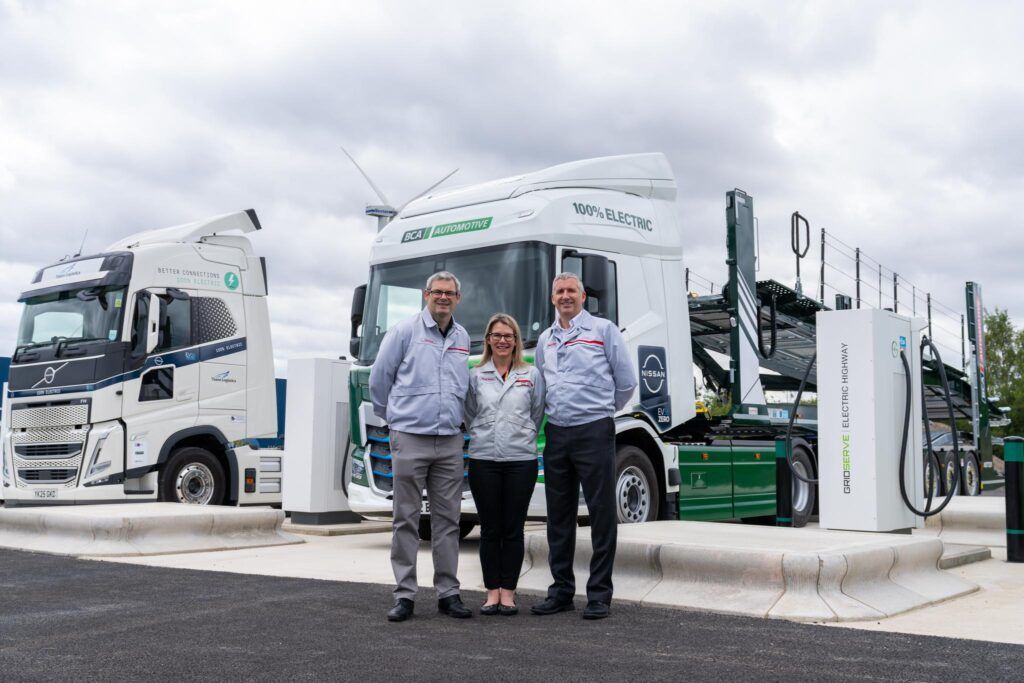Gill Nowell, Principal at sustainable engineering company AFRY, reflects on recent key developments in the e-mobility sector – and where we go from here.
I’ve recently joined AFRY, a global engineering, design and advisory company. Our aim at AFRY is to accelerate the transition toward a more sustainable society. I’m excited to work for a company that aligns so clearly with my own personal and professional goals. We help our e-mobility clients transform their business and capitalise on new opportunities. In the e-mobility space we do this, for example, through in-depth market assessments, EV charging strategies, program management for charging network expansion and data-driven innovation.
I’ve been invested in electric vehicles for over a decade, over which time the rate of development and deployment of new electric car models, charging infrastructure and energy innovation has been notable. Whilst some may consider we still have a long way to go to reach a place where EVs are the affordable norm across our society, we have already reached the technology tipping point; that critical 5% of all new cars being powered by electrons has been achieved by 23 countries, according to Bloomberg Green analysis of adoption rates around the world. And once that 5% has been reached, the data shows that mass adoption follows.
So this is good news, right? And what about the UK? New registrations of battery electric vehicles continue to be buoyed by low tax rates, making business contract hire and salary sacrifice attractive for the corporate sector. On the personal EV sales front though, uptake is being impacted by the ongoing cost of living crisis, stubbornly high rates of inflation, and dearth of incentives.
Encouragingly for buyers at least, second hand electric car sales are soaring to new levels, making EVs more affordable for more people. In the UK around 6 million people buy used cars each year, and only 1.5m buy new, so a healthy used market for EVs is key to mass adoption.
The enabling charging infrastructure required for mass EV adoption is always on my mind. The UK Government’s goal is to have a minimum of 300,000 public chargers rolled out by 2030. It’s worth noting here that AFRY’s data insight suggests that whilst highest capacity will be at destinations, 300k in total by 2030 may well be a bit of a stretch target. However, as we reach the heady 50k public chargers mark, it would seem that we’re heading in the right direction at least. Of course, it’s more than just a numbers game. They need to be the right speed of chargers, in the right numbers, and in the right locations – easy to use and accessible to all drivers. The consumer experience at public chargers is being boosted by a series of improvements under the Public Charge Point Regulations 2023, covering reliability – on average a 99% rate of reliability must be maintained (although only applies to chargers above 50kW), enforcing a 24/7 helpline, and pricing must be transparent – so you know what you’ve paid! Contactless payment must also be available – on new chargers above 8kW and existing rapid chargers above 50kW. It also supports open data and promotes interoperability and payment roaming services.
But what of electric car supply? Looking ahead we can anticipate increasing commitment from car manufacturers to switch their lines to fully electric; those that don’t will be left behind and fall foul of the requirements under the Zero Emission Vehicle (ZEV) Mandate. Under the Mandate, 22% of all new cars sold must be zero emission by 2024, ramping up to 80% by 2030, and 100% by 2035. The fly in the proverbial ointment may be the EU trade tariff situation, whereby under the rules of origin, UK and EU car makers have until 1 January 2024 to source at least 45 per cent of an electric vehicle’s parts (by value) and 60 per cent of its battery from either the UK or EU. If the New Year deadline is not extended, EV prices could rise and potentially effect demand. In very simple terms, the benefits of the ZEV Mandate, in consumer cost terms, could be wiped out by trade tariffs.
Either way, it’s an interesting time for EV in the UK. Electric vehicles are becoming an increasingly common sight on our roads. Charging infrastructure roll out is gathering pace, and the sector is ripe for innovation – think vehicle to grid / home / load, energy storage, grid management, or on-street charging solutions for those who cannot charge at home.
I’m tasked with growing AFRY’s UK e-mobility business. We have extensive experience in working with charge point operators, fleets, government and other e-mobility stakeholders across the globe to drive forward data-driven solutions in support of EV uptake. Collaboration is key. I’m looking forward to working even more closely with everyone in the transport and energy sectors as we move forward together on a sustainable path towards net zero.
Feel free to drop me a note: gill.nowell@afry.com















